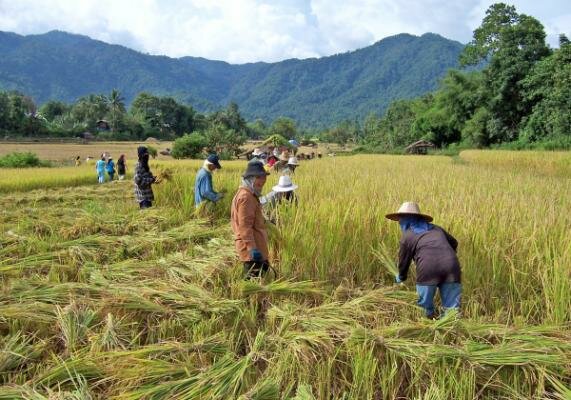Price of Rice Soars
Thai rice policy sows worldwide uncertainty.
 A new paddy-pledging programme in Thailand that has already pushed up the cost of rice globally will go into effect on 7 October, amid uncertainty and scepticism.
A new paddy-pledging programme in Thailand that has already pushed up the cost of rice globally will go into effect on 7 October, amid uncertainty and scepticism.
The move by the world’s leading exporter has stirred humanitarian concerns far beyond Thailand’s borders, particularly for rice-consuming countries that do not produce much at home. The government plans to pay its farmers more than double the market value for rice.
“We have been very concerned about this, mostly because this is going to affect [African] markets – definitely,” said Aliou Diagne, an economist with the Benin-based Africa Rice Center.
USAID last month warned that prices were likely to climb 20 percent over the next three months, while others predict the greatest short-term impact has already been felt. What happens next, economists say, depends on how Thailand implements the programme.
In the long term, analysts said they expect it to encourage other countries to step up exports and thus dampen the price of rice – consumed by three billion people daily. But some say what Thailand is doing is unsustainable, and doubt it will last long.
“This is going to be detrimental to the rice sector in Thailand, especially in the long term,” said Concepción Calpe, a senior economist with the UN Food and Agriculture Organization (FAO) in Rome. “They’re pricing themselves in a manner that doesn’t make them competitive.”
Measuring the impact
Under the plan – a campaign pledge by recently appointed Prime Minister Yingluck Shinawatra – the government is raising the minimum guaranteed price for farmers by more than 60 percent, to 15,000 baht, or US$480, per ton.
The policy is aimed at supporting farmers and boosting Thailand’s agriculture sector, government spokeswoman Anuttama Amornvivat said.
“If the farmers have more income, they will spend more money in the economy,” she said. “When we spend more, the GDP will definitely increase – significantly."
But it has drawn criticism over whether it is an effective policy for Thailand and the best way to help farmers. Because payments are linked to production, the bigger farmers stand to gain most, Samarendu Mohanty of the International Rice Research Institute in the Philippines, said.

















